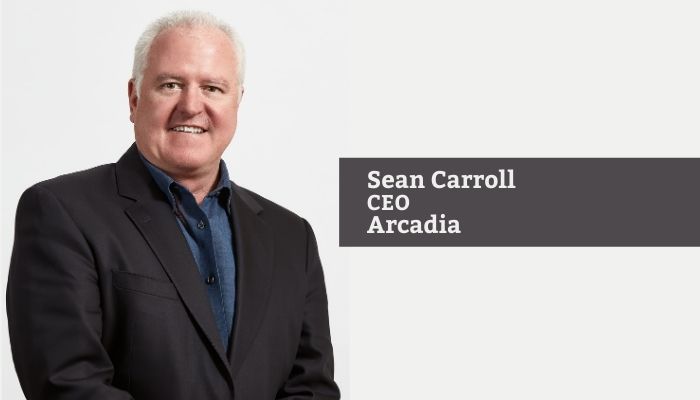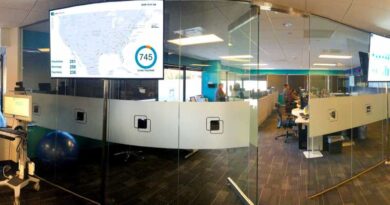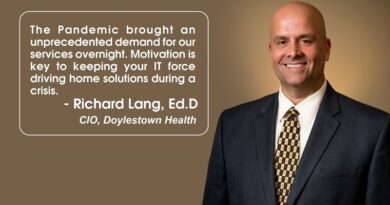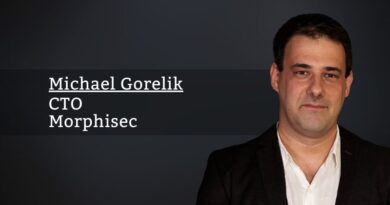Arcadia Ensuring Financial Success in Value-Based Healthcare
Population Health Management (PHM) has been an important component of healthcare delivery for over a decade, but a recent shift toward value-based care has accelerated its adoption. A well-developed PHM program allows clinicians to identify care gaps and improve patient outcomes, which in turn reduces medical utilization and the total cost of care.
PHM initiatives rely on data from across the care continuum, but many healthcare providers struggle to get the insights they need because data is trapped in silos: individual EHR implementations, payer claims processing systems, and others.
For close to two decades, Arcadia (Arcadia.io), a healthcare data and software company, has been committed to helping healthcare organizations aggregate, analyze, and act on the data they need to develop innovative PHM programs and succeed in value-based care.
Backed by Years of Research
Underlying every transformative solution is a strong understanding of the core challenge. Arcadia has worked side-by-side with clinical staff across the United States to understand their needs and has spent over ten years building IP around making EHR data accessible and actionable for population health.
Today, Arcadia is the only healthcare data and software company focused on empowering healthcare organizations to achieve financial success in value-based care. The company’s purpose-built population health platform—Arcadia Analytics—has received widespread market and analyst attention for its ability to drive enterprise-level transformational healthcare outcomes.
Behind the company’s success is a team of passionate and inquisitive explorers led by Arcadia CEO and industry veteran Sean Carroll, who has over three decades of experience working with healthcare data and its disruptive potential. He confirms, “For Arcadia, population health management has always been intertwined with the move to value-based payment models. We work with health systems, providers, payers, and life science companies positioning themselves to win in value-based care, including some of the largest, most complex, and influential healthcare organizations in the country.”
An Enterprise-Grade, Scalable Solution for PHM
So how exactly is the Arcadia Analytics platform for population health management so unique? While Arcadia sees the traditional fee-for-service model as unsustainable, it recognizes that the move to value-based care will require healthcare organizations to adopt new business models. Managing population health and risk contracts requires deep, timely insights into patient populations. However, critical patient information is often locked in disparate systems such as EHRs, ADT feeds, adjudicated claims-based data, and more. As a result, leadership, care managers, and quality and risk teams—with different unique data needs—have only a partial view of individual and population data. “Often, organizations participating in value-based care struggle to efficiently close risk and quality gaps and reduce the total cost of care. To improve quality and financial performance at scale, organizations need clean and normalized data that provides actionable insights for administrators and care teams to act upon,” states Carroll.
Arcadia Analytics is a HITRUST CSF®™ certified, cloud-based, and HIPAA compliant population health platform that continuously aggregates and curates high-quality, comprehensive, and up-to-date population health data assets. The platform is architected to scale to support complex use cases across thousands of users and millions of patients. Arcadia Analytics also provides relevant, timely predictive analytics and enables action through care management tools and in-workflow insights. “Arcadia customers consistently overperform industry average outcomes by reducing medical expenses and improving risk coding accuracy, quality, and patient health,” says Carroll.
Built on best-in-class big data architecture, the Arcadia Analytics platform is reliable, automated, secure, and cost-effective. Consequently, the platform packs the potential to meet the needs of even the largest, most complex healthcare organizations with hundreds of data sources. Arcadia offers innovative technologies and methods to amass and curate the data organizations need for population health initiatives. Arcadia Data Connect provides system-agnostic interfaces to EHRs, claims-based feeds, and other clinical systems with data processed in near-real time. The Arcadia Data Warehouse has been modeled from the start to support value-based care and population health use cases, and the Arcadia Master Patient Index matches patients and members across hundreds of disparate data sources for a fully longitudinal patient view.
Data You Can Trust
With the power of Arcadia Analytics, healthcare organizations always have best-in-class insights at their fingertips. Arcadia Analytics enables organizations to identify and act on opportunities across medical economics, quality measurement, risk adjustment, and care management using sophisticated analytics and predictive modeling. “We designed Arcadia Analytics with the whole organization in mind from leadership, directors, key stakeholders to data gurus and analysts to care teams, and clinicians. Everyone can access and explore enriched data and user-friendly analytics to drive success in value-based care,” states Carroll. Arcadia’s patient identification, stratification, and management capabilities offer healthcare organizations dynamic tools to leverage predictive analytics as they build cohorts, track their care, and collaborate on clinical programs. “Our enterprise data assets and analytics serve as the foundation for AI-powered workflow tools and point-of-care insights so care teams can meaningfully impact risk and quality gaps for their populations and effectively execute any number of population health initiatives,” states Carroll.
With data security a critical concern for healthcare CIOs, Arcadia was one of the first population health technology companies to earn the HITRUST CSF ® ™ certification for its PHM platform. HITRUST® is a leading data protection, standards development, and certification organization. The HITRUST CSF certification process uses independent, third-party auditors to verify that Arcadia is appropriately managing risks and meets all leading industry security, privacy, and regulatory standards. “Having the HITRUST CSF certification helps us bring peace of mind to our customers and simplifies security review for potential customers. Some vendors employ third-party HITRUST CSF-certified components or mechanisms, while Arcadia has achieved fully-validated HITRUST CSF certification across our entire Arcadia Analytics platform, demonstrating our continued commitment to securing our customers’ data assets,” points out Carroll.
Given their state-of-the-art platform and commitment to data security, it comes as no surprise that Arcadia has strong long-term partnerships with healthcare customers and several relationships date back a decade or more. “We have had the privilege of working with the healthcare organizations that have led the way in value-based care, helping them leverage data as they took on risk – first in pay-for-performance contracts, then in upside-only contracts, and finally taking on increasing upside and downside risk for ever-larger numbers of patients. As they have innovated and evolved, Arcadia has innovated and evolved right alongside them,” explains Carroll. To give a better perspective into the efficiency of their solutions, in 2019, Arcadia’s Medicare Shared Savings Program (MSSP) Accountable Care Organization (ACO) customers generated $202 million in shared savings. On average, they generated $5.9 million in savings, exceeding the performance of their peers by 53%. Arcadia customers also earned 34% higher bonuses than their peers on average.
Need for Excellence
Arcadia’s strong network of investors and advisors ensures the company is well-capitalized and well-positioned to continue investing in the platform and take advantage of market opportunities. Arcadia continues to focus on usability and frictionless connectivity to enable customers to support new population health use cases. Arcadia realizes that great ideas are often thwarted by a lack of data access, so the company is building pathways into the Arcadia ecosystem to support true interoperability. “Through out my career,” concludes Carroll, “I have endeavored to work alongside like-minded professionals dedicated to transforming healthcare. We should all be excited about the next 25 years in healthcare technology. I believe a new generation of foundational companies—including Arcadia—will define that future for healthcare delivery.”



